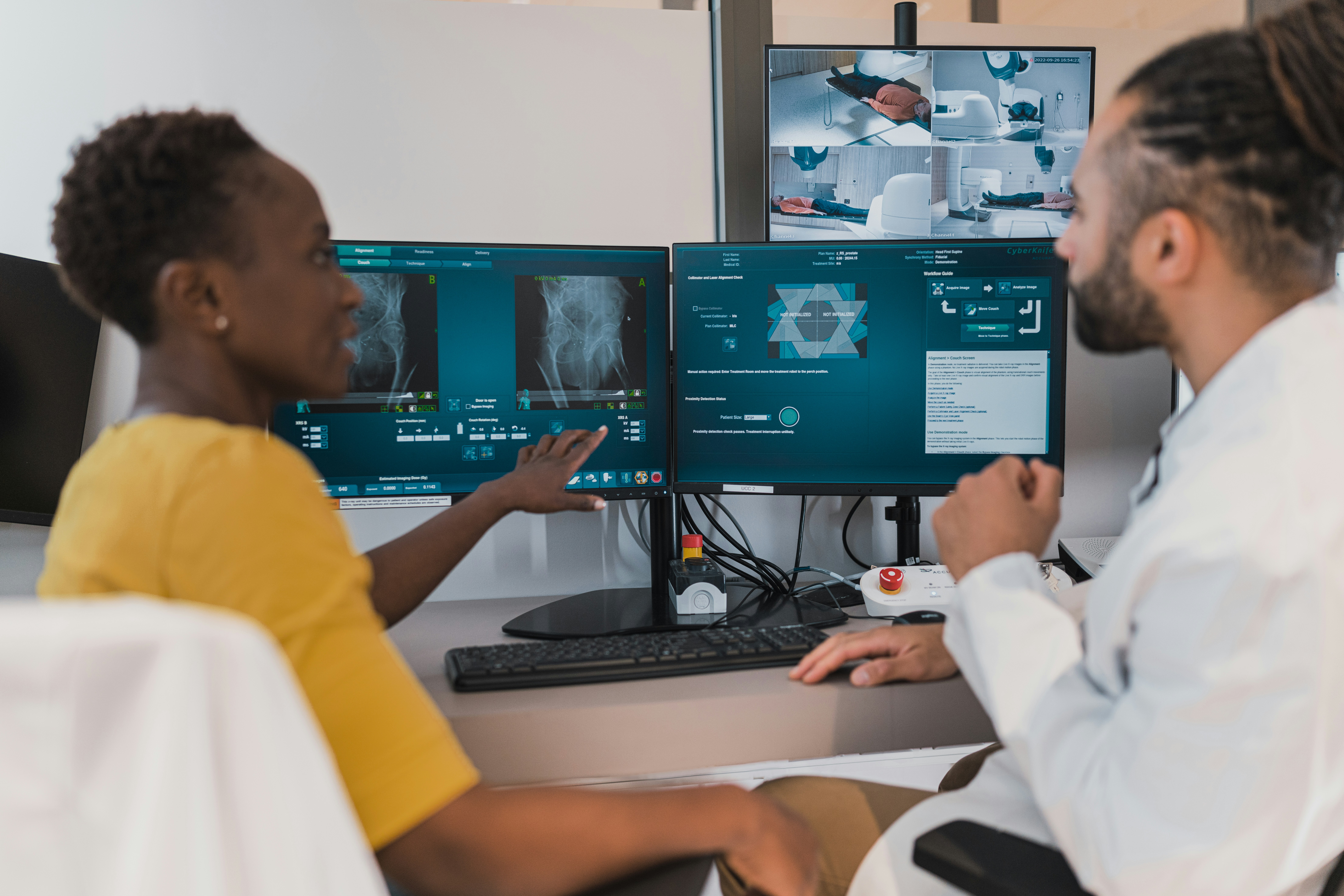Sharon Osterfield, Transformation Director at e18, started her career as a clinician. Following a degree in applied physiology with a major in cardiology, Sharon became a cardiac physiologist. Very quickly, she moved up into management positions, heading large divisions. With her clinical background and aptitude for leadership, Sharon began working on transformational change and project management, on projects such as Electronic Patient Record (EPR) implementation and Robotic Process Automation (RPA).
In her current role at e18, Sharon works with organisations on the implementation of RPA – a sophisticated business management and change management tool – helping them to improve clinical care, quality of care and staff morale as well as the financial benefits that come with the technology.
RPA for Clinicians
RPA is a tool with endless possibilities for bringing efficiencies within the NHS, transforming the way trusts can manage their resources.
With Sharon’s clinical experience, she is in a position to guide organisations to utilise RPA to improve clinical processes – a step above using it for back office processes.
“I’m driven by improving the quality of care because I’m a clinician. Looking at scoping multiple processes around how we could improve the efficiency of the service that the patient receives. What I’m noticing is a maturity scale for organisations. Although the back office function seems to be such a logical and opportune rich picking place to start, the larger opportunities are associated with how we can use this technology to improve the delivery of clinical care and how automation can be applied to that.”
Sharon supports trusts through this ‘maturity curve’, enabling them to see the benefits of both automating back office processes and guiding them towards the evolution of the patient experience through the use of RPA in more patient facing functions.
“My role involves working to spread the adoption across multiple organisations, helping them realise the benefits and getting them excited about what technology can do. A lot of NHS organisations have had quite a top down lack of engagement in terms of some of their technological implementations, but RPA is definitely a bottom up approach, so you really need to work with the subject matter experts. They often drive what is efficient for them in their workplace, and that’s really exciting because they can get motivated to think about technology in a different way.”
Problem Solving as a Passion
Sharon’s biggest driver in her work at e18 is her enjoyment of working with clinicians, helping them to deliver patient care whilst also removing the roadblocks or inefficiencies that are holding them back.
“My passion is problem solving and using innovative tools to do it, working alongside clinical teams to identify what their problems are. It just seemed so logical to join e18 and share that experience, and that lens around the technology that we can use to solve a bigger challenge in the NHS.”
The NHS is a huge organisation, covering the entire country and a vast range of healthcare elements. To be an expert in all areas of the NHS would be impossible, but part of the joy of working with such an organisation is the ability to learn about different areas and delve into how RPA could help there, too.
“I’ve worked in a Community Trust for couple of years, but actually I haven’t touched on mental health. My other passion is learning how those organisations work and what their problems are and how we can work to solve them as well.”
The Future for RPA
Sharon’s vision for the future of her role within e18 is evidencing and tracking the benefits of RPA for the NHS as a whole. From time release saving and financial savings to efficiency metrics around clinical care, the benefits need to be measured in order to take the next step and roll out RPA across a greater range of processes and types of orgnaisations.
“How can we use RPA on an end to end pathway, from referral from primary care right through to diagnostics and in secondary care treatment? What needs to be automated for that patient? Taking the patient as the focus for the automation because then we could really radically potentially change how we deliver the care because we’ve got safety nets that we can build in as part of our RPA.”
The idea of creating autonomous journeys for patients to improve their experience and increase efficiency savings could transform the way patients receive care.
“The opportunities are endless if you’re looking at intelligent automation and unstructured data and then moving towards how artificial intelligence fits into that. It’s exciting how that radically can affect that patient’s journey and just improve the pathway, meaning time to care is much faster and more efficient.”






